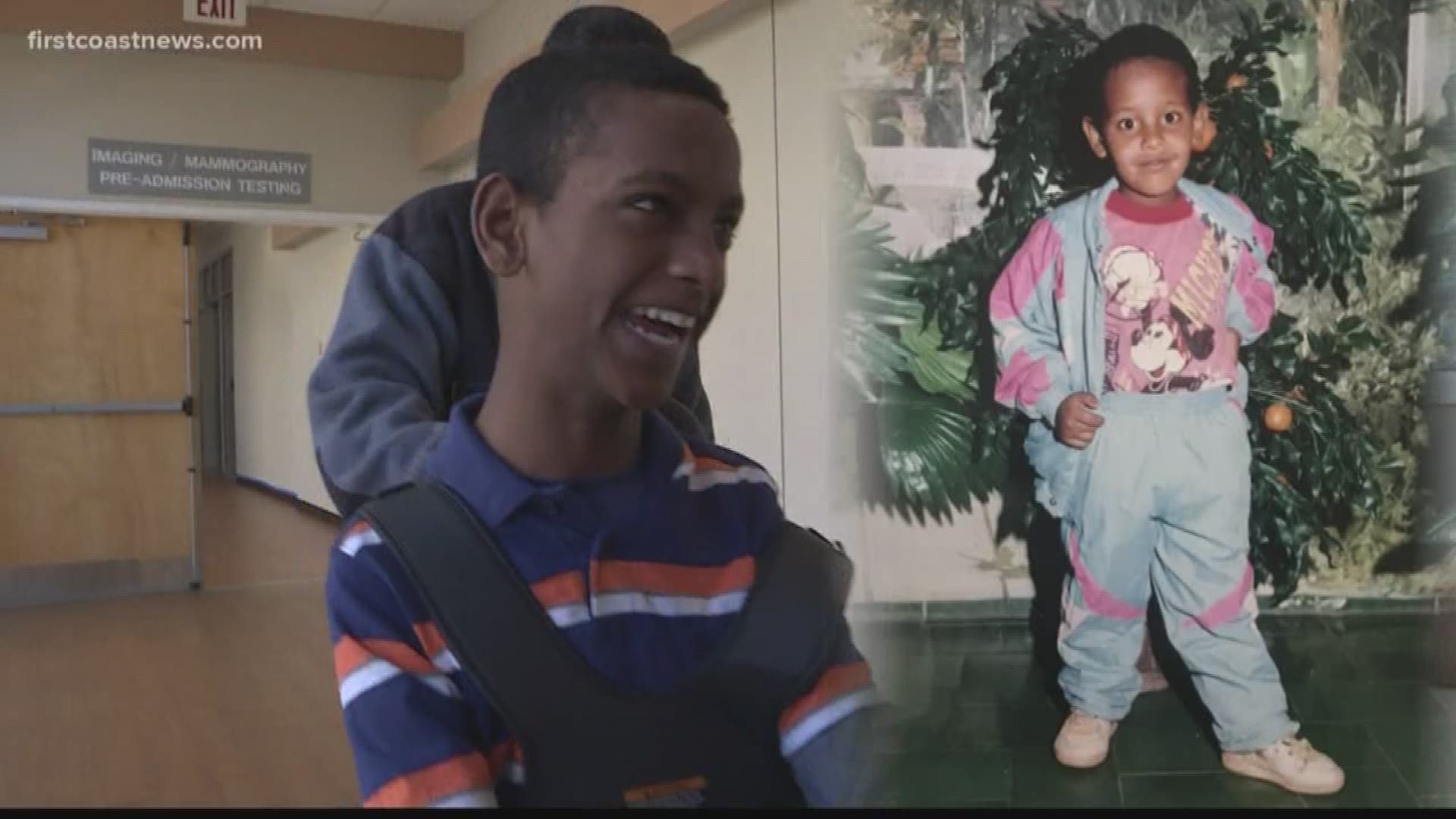Surur Ali is 14 years old. His father Mahammad says he was happy and active as a little boy.
“He was a very physical child,” Mahammad told First Coast News through an interpreter Wednesday.
But all that was half a lifetime ago and half a world away. When Surur was seven, his family tried to flee their northeast African home country of Eritrea.
“There is no stability in Eritrea,” Mahammad said.
The country, which Human Rights Watch says has had no national elections, legislature, independent press, or independent civil society organizations since 2001, has seen countless citizens try to leave.
When Surur’s family attempted their exodus, they were stopped.
“[Authorities] were closing the border,” Mahammad recalled. “And then [my wife and children] were captured, and they started torturing [Surur].”
Mahammad had left the country for Sudan ahead of his family. He says their torture was at the hands of human traffickers.
“Their intention was to remove his organs, his kidneys, and they gave him an injection.”
The captors killed Surur’s brother but somehow left his sister relatively unscathed.
“He had brain damage right after they gave him the medicine,” Mahammad said.
That brain damage crippled Surur’s upper body mobility, as well as his ability to speak.
“He can’t talk, he can’t move,” Mahammad said.
It was unclear what concoction the traffickers had injected into his sons.
“And when he came to the doctor, they couldn’t find out what happened to him,” he said.
Because of the effect of the drugs at the time, the family’s recollections of escape or rescue are vague at best. Other effects have lingered unabated despite the beginning of therapy after humanitarian efforts brought the family to the United States in January 2018.
“When [Surur] came to this country his health was in really bad shape,” Mahammad said.
Fortunately, that tide began to turn when Surur began receiving physical therapy at Brooks Rehabilitation in Jacksonville.
“Initially I would say people would count him out for a lot of mobility and independence,” Steve Walczak, Brooks Pediatric Physical Therapist said. He added that, even though Surur couldn’t stand up, he still stood out.
“He’s not a hard one to get to smile, so it’s easy to work with him in that regard,” Walczak said.
Surur’s father says he’s seen progress in the months since.
“Now he can move his hand and he can work, even though people support him,” he noted.
A new chapter of support came Surur’s way Wednesday when the Jacksonville-based JT Townsend Foundation presented Surur with an adaptive therapy trike. Although the 14-year-old had already become acclimated to a wheelchair he could control with a joystick and foot movements, the folks at JT Townsend Foundation say the trike offers the opportunity for continued progress.
“It will help with the muscle, his muscle tone. And it might be even able to help him walk one day,” said Foundation creator Carmen Townsend. She and her son Jerry (“JT”) established the foundation after JT suffered a spinal cord injury during a high school football game in 2004. JT passed away in 2013, but Townsend says he had made great strides beyond doctors’ initial prognosis that he would be quadriplegic for the rest of his life.
"He wanted to give back to the community that so richly gave to us in our time of need,” she recalled.
The adaptive tricycle for Surur is just the latest case in point. As one who knows the power of positivity – JT was known for his “infectious smile – his mother was as thrilled about what Surur’s new trike can do for him spiritually, as much as physically.
"My God, that smile on his face was beautiful,” she said of Surur’s undeniable thrill while taking his maiden voyage in the Brooks Rehab corridors, “a million-dollar smile … priceless.”
Even on meeting Surur for the first – and hopefully not last – time, it was hard to reconcile Surur’s indomitable soul to the horrific atrocities visited upon him. Even his therapist cautioned that his patient’s full recovery might be elusive.
"I never like to say I that have a crystal ball and I know exactly,” Walczak said. “I think the part of the brain that was affected for him will make it difficult for him … but we don’t know for sure. Especially with kids, their brains’ ability to change is amazing, so we’re always hopeful.”
But again, considering Surur’s shiny green-metallic new ride and that smile that could melt an iceberg, it seemed on this day that only a fool would bet against him.
“Like anyone else, [Surur’s smile] just brightens you up,” Walczak said, unable to contain a smile of his own.
“To see him cruising down the halls of Brooks today was just magical,” said JT Townsend Foundation spokeswoman Pauline Gerry. “Really the goal is to help him strengthen his muscles so that someday, potentially, he could maybe even walk.”
Gerry noted that Surur’s family still needs a great deal of help, including a bicycle for his sister.

